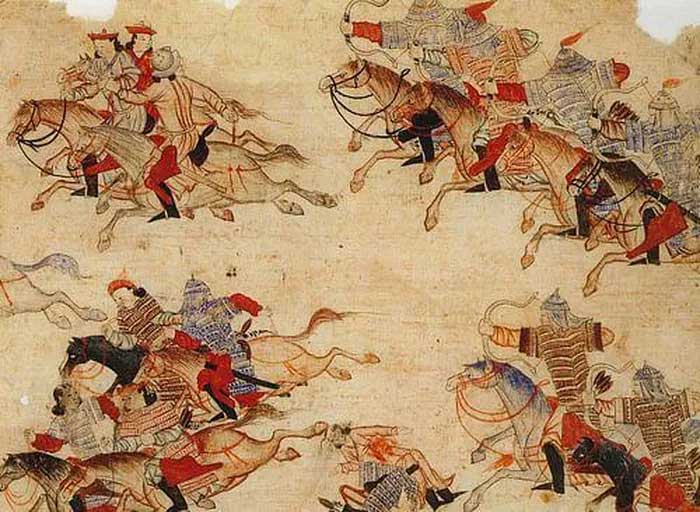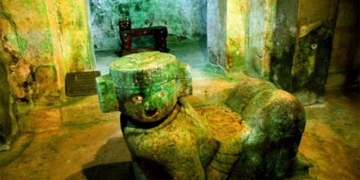During the excavation of ancient graves related to the Huns, experts discovered a disturbing artifact: 68 large braids of hair. From this, a chilling secret was revealed.
In the 1920s, archaeologists excavated numerous ancient graves related to the Huns in Mongolia and Xinjiang, China. Among these, they paid particular attention to a relic discovered during the excavation of an ancient tomb.

The Huns used skulls as drinking cups, which frightened many. (Illustrative image).
Specifically, inside the ancient tomb that is thousands of years old, experts found many valuable burial items such as gold, silver, and jewels. However, since the tomb lacked inscriptions or carvings of any names on the artifacts, researchers were unable to determine the identity of the tomb’s owner. Nonetheless, experts were horrified to find the bizarre artifact inside the ancient tomb: 68 large braids of hair that were relatively intact.
According to experts, these braids all belonged to women. From this, they speculated that these women were likely victims in a sacrificial ceremony for the tomb’s owner after this individual passed away. The research results also indicated that these women were war prisoners of the Huns. The corpses of these individuals bore cuts on their throats, indicating a painful death.
The Huns had a custom of not using women from their own tribe for burial alongside the deceased. Instead, they utilized prisoners captured from neighboring areas and tribes. Therefore, most of the victims brutally killed by the Huns in the sacrificial ceremony to accompany the deceased were Han Chinese, while others came from western regions.
During the excavation of the aforementioned tomb, experts also found a skull used as a drinking cup. Instead of drinking from traditional cups, the Huns preferred to use drinking vessels made from human skulls. According to records in “The Historical Records of the Huns”, after defeating their enemy, the Yuezhi, the Huns used the skull of their king as a drinking cup. This reveals a tradition among the Huns of taking the heads of their enemies after defeating them in battle, subsequently using those skulls as drinking vessels, which frightens many.


















































